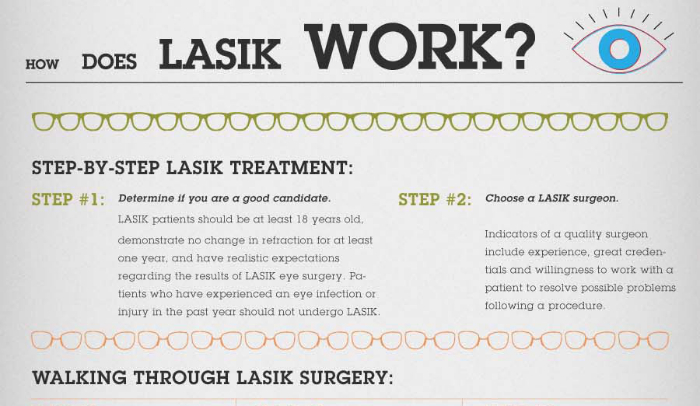Uncover The Key Differences Between Traditional And Laser Cataract Surgical Treatment Methods To Identify Which Is Ideal For Your Vision Requires

Short Article By-Leonard Wilcox
When dealing with cataract surgery, you could wonder about the distinctions in between standard and laser techniques. Each approach has its own collection of advantages and downsides, affecting your recuperation and total experience. Recognizing these options is important for making an educated choice about your eye health and wellness. So, what should you take into consideration when selecting the best approach for your requirements? Allow's discover the information even more.
Review of Conventional Cataract Surgical Procedure
Traditional cataract surgical procedure, usually described as phacoemulsification, is a well-established treatment that properly restores vision by removing the cloudy lens of the eye.
Throughout this surgical procedure, your specialist will create a small incision in your cornea, enabling access to the lens. Utilizing ultrasound waves, they'll separate the cloudy lens right into little pieces, which are after that gently sucked out.
As soon as the old lens is removed, a fabricated intraocular lens (IOL) is implanted to bring back clear vision. The surgery typically takes less than an hour and is performed under local anesthetic, lessening discomfort.
Later, you'll likely discover enhancements in your vision as your eye heals. You'll need to comply with post-operative treatment directions to make certain optimal healing.
Advantages and Negative Aspects of Laser-Assisted Cataract Surgical Procedure
While many people benefit from traditional techniques, laser-assisted cataract surgical procedure offers distinct advantages and some downsides worth thinking about.
One major advantage is accuracy; the laser creates exact cuts, which can bring about quicker recovery and decreased threat of issues. https://health.clevelandclinic.org/new-lens-eliminates-your-need-for-glasses-after-cataract-surgery/ could also experience less pain during the treatment. In addition, the laser can break up the cataract a lot more efficiently, needing less power from the surgeon.
However, it's important to evaluate these benefits versus prospective negative aspects. Laser-assisted surgical treatment normally sets you back more than typical methods, and not all insurance policy prepares cover it.
Moreover, the technology may not be readily available in every center, which can limit your alternatives. Ultimately, you'll intend to review these aspects with your eye treatment specialist to identify the most effective strategy for you.
Recuperation and Aftercare for Cataract Surgical Treatment
After cataract surgical treatment, whether it was executed using standard approaches or laser help, your recovery process is very important for attaining the best possible vision outcomes.
You need to rest for the initial day and stay clear of exhausting activities. Maintain your eyes secured with sunglasses when outdoors, specifically in bright light.
It's vital to follow your surgeon's instructions pertaining to eye drops and medications; these help prevent infection and minimize swelling.
https://drive.google.com/drive/folders/1F9UcUeEMsP4svY0hgKKxZhgSaPioTTei?usp=drive_open might experience moderate discomfort or blurry vision originally, but this ought to boost gradually.
Go to all follow-up visits to check your recovery progress. If you observe unexpected discomfort, enhanced inflammation, or vision changes, contact your doctor promptly.
Abiding by these guidelines will support a smooth recovery and boost your total outcomes.
Final thought
To conclude, selecting in between traditional and laser-assisted cataract surgical procedure relies on your certain demands and circumstances. While conventional techniques are well-established and reliable, laser techniques supply improved accuracy and potentially quicker recuperation. It's important to review your options with your eye care professional to identify which strategy fits you finest. Inevitably, both approaches aim to recover your vision and improve your quality of life, so you can get back to enjoying your day-to-day activities.

